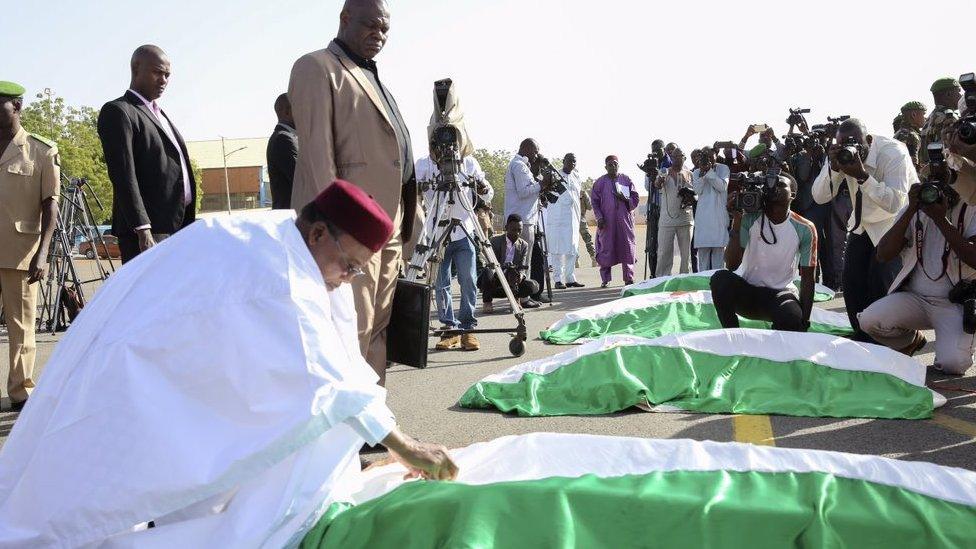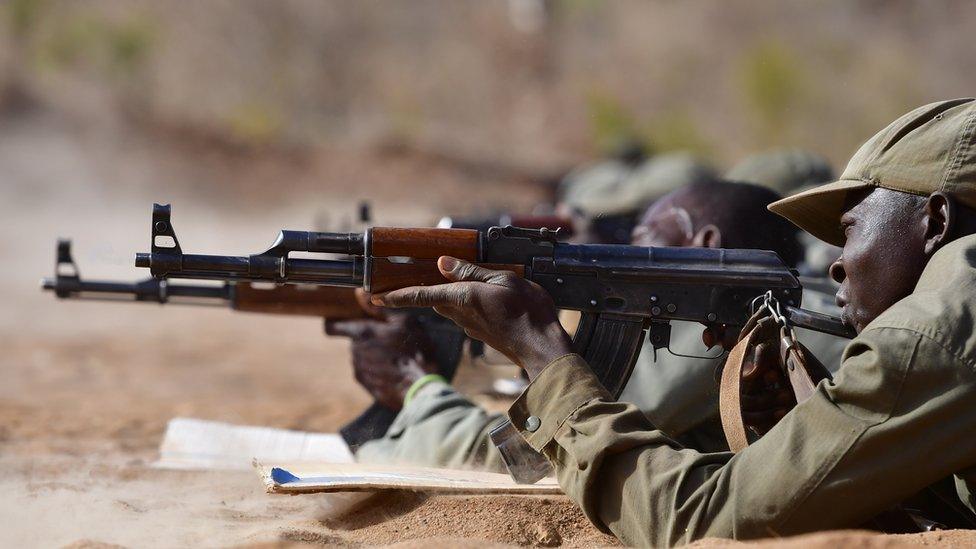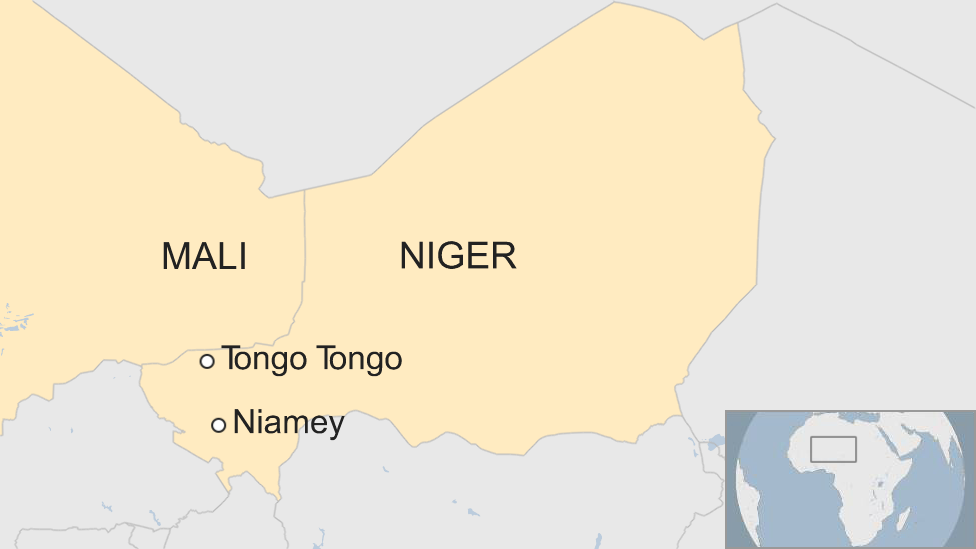Niger army base attack: West African leaders call for more help
- Published

Niger President Mahamadou Issoufou received the bodies of the dead soldiers on Friday
Five West African leaders have appealed for greater international help to combat militant Islamists following the killing of 71 soldiers in Niger.
Niger's President Mahamadou Issoufou said the militants had become "professionals in the art of war".
The Islamic State (IS) group said it killed the soldiers during an attack on a military base in western Niger.
The soldiers were buried on Friday inside a military base close to the capital Niamey.
The leaders held a short prayer service beside the graves of the soldiers.
They included President Issoufou, and the leaders of Burkina Faso, Chad, Mali and Mauritania - the G5 Sahel nations bearing the brunt of attacks by militants linked to IS and al-Qaeda.
Last week's attack in Niger's western town of In Ates was described as the deadliest raid against the Nigerien military in living memory.
Mr Issoufou said the threat posed by the militants was getting worse.
"The demands we are making to the international community are justified. Firstly, because it is responsible for what is happening to us because of its disastrous decision to intervene in Libya.
"Next, because security is a public good, the people of the Sahel, our people, must not be alone in bearing the heavy cost of this war," he added.

Burkina Faso's President Roch Marc Christian Kabore said there was a need to step up cooperation among regional states.
"These endless attacks carried out by terrorist groups in our region remind us not only of the gravity of the situation, but also the urgency for us to work more closely together," said Mr Kabore, the current chair of the G5 Sahel nations.
The five countries have a counter-insurgency force, supported by 4,500 French troops, to fight the militants.
It was launched four years ago when almost all the attacks by the Islamist militants were in Mali.
But since then the area affected by the violence has grown significantly and spread to neighbouring countries, partly because the regional force is under-equipped and many of the soldiers are poorly trained.

You may also be interested in:
What is behind Mali's massacres?
- Published27 November 2019

- Published16 May 2019
